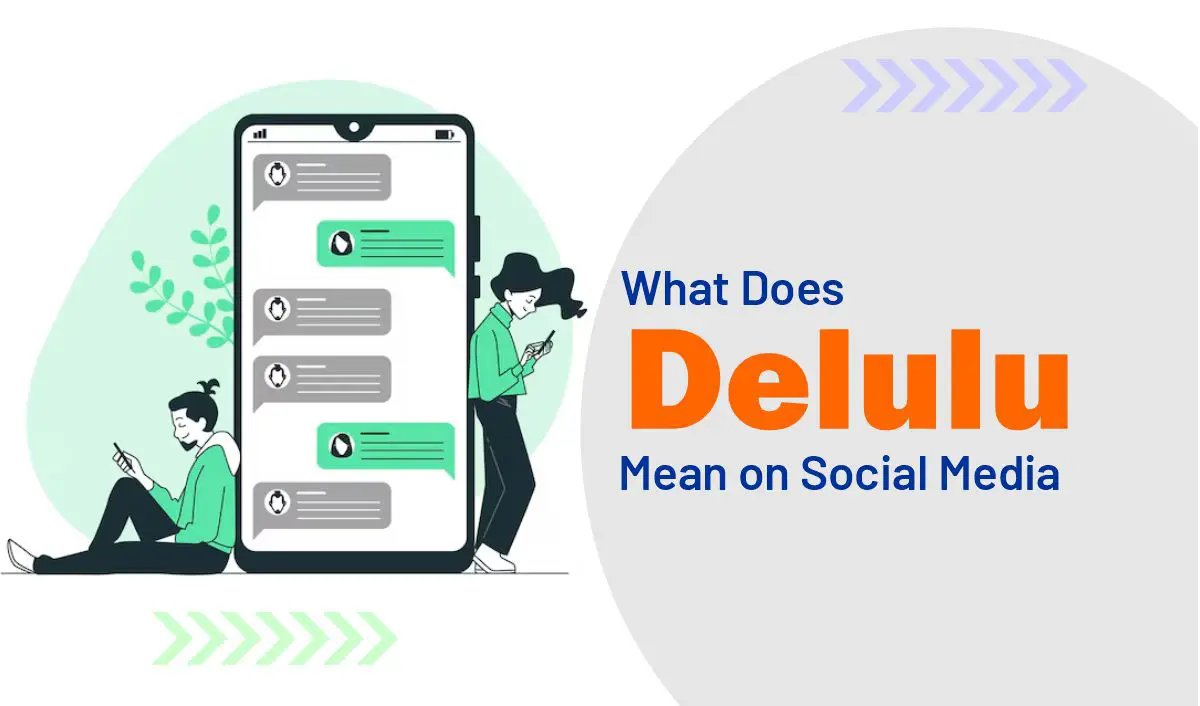In the ever-evolving landscape of internet slang, “delulu” has emerged as a term that encapsulates a unique blend of humor, aspiration, and cultural commentary. Originating from niche online communities, it has since permeated mainstream discourse, reflecting broader societal attitudes towards ambition and self-perception.
This article delves into the origins, evolution, and contemporary usage of “delulu,” offering insights into its significance in today’s digital culture.
Origins of “Delulu”
K-Pop Fandom Roots
The term “delulu” is a portmanteau derived from “delusional,” first gaining traction within K-pop fan communities around 2014. It was employed to describe fans who harbored unrealistic fantasies about their favorite idols, such as believing they were in a secret relationship with them. This usage highlighted the intense parasocial relationships that can develop between celebrities and their admirers .
Transition to Broader Internet Culture
While initially confined to K-pop forums, “delulu” began to seep into broader internet vernacular. By the mid-2010s, it appeared on platforms like Urban Dictionary, where it was defined as “a delusional fan girl/boy who believes they can/will end up with their favorite idol or celebrity” . This marked the beginning of its evolution from a niche term to a more widely recognized slang word.
The Rise of “Delulu” on Social Media
TikTok and the Mainstreaming of “Delulu”
The term experienced a resurgence in popularity around 2022, primarily due to its adoption on TikTok. Users began employing “delulu” to describe not just fan fantasies but also humorous or exaggerated personal aspirations. For instance, someone might jokingly claim they’re “delulu” for believing they’ll marry a celebrity or achieve an improbable career milestone. This playful usage resonated with many, leading to a surge in the term’s popularity .
Hashtag Proliferation
The hashtag #delulu amassed significant traction on platforms like TikTok and Instagram, with billions of views and countless user-generated content pieces. This widespread usage further cemented “delulu” as a staple in online slang, transcending its original context to encompass a broader range of unrealistic yet humorous beliefs.
“Delulu is the Solulu”: Embracing Optimistic Delusion
Understanding the Phrase
A notable evolution of the term is the phrase “delulu is the solulu,” which translates to “being delusional is the solution.” This expression encapsulates a mindset where embracing optimistic, even unrealistic, beliefs is seen as a way to achieve one’s goals. It’s a form of radical self-confidence, suggesting that believing in oneself—no matter how improbable the dream—is a step towards making it a reality .
Cultural Impact
This phrase has been widely adopted by Gen Z, reflecting a generational shift towards valuing self-belief and manifestation. It’s often used humorously but also carries an undercurrent of genuine aspiration, highlighting the blurred lines between irony and sincerity in contemporary internet culture.
Practical Applications and Examples
In Personal Aspirations
Individuals might use “delulu” to describe their own lofty goals, such as:
- “I’m delulu for thinking I can start my own business with no experience.”
- “Believing I’ll become a famous singer overnight? That’s peak delulu.”
These statements, while humorous, also reflect a willingness to dream big and challenge conventional limitations.
In Romantic Contexts
“Delulu” is frequently used to describe unrealistic romantic expectations:
- “He’s never spoken to me, but I’m convinced we’re soulmates. Total delulu.”
- “Thinking my crush will notice me just because I liked his post? Classic delulu behavior.”
Again, the term is used playfully, acknowledging the improbability of the situation while still indulging in the fantasy.
Psychological Perspectives
The Fine Line Between Optimism and Delusion
Mental health experts have weighed in on the “delulu” trend, noting that while positive thinking can be beneficial, it’s essential to balance optimism with realism. Embracing “delulu” thinking can boost confidence and motivation, but relying too heavily on unrealistic beliefs without actionable steps may lead to disappointment .
Manifestation and Self-Belief
The “delulu” mindset aligns with the concept of manifestation—the idea that believing in a desired outcome can help bring it to fruition. While manifestation has its critics, proponents argue that a strong belief in one’s goals can lead to increased effort and, consequently, success.
“Solulu” and the Expansion of the “Delulu” Lexicon
Defining “Solulu”
“Solulu,” a playful derivative of “solution,” emerged alongside “delulu” to suggest that embracing delusional thinking can be a solution to life’s challenges. The phrase “delulu is the solulu” encapsulates this idea, promoting a mindset where optimistic delusion is seen as a viable path to achieving one’s dreams .
The “Delulu-Verse”
The creativity of internet users has led to the expansion of this lexicon, with terms like “trululu” (truth) and “craylulu” (crazy) entering the fray. This linguistic playfulness reflects the dynamic nature of online culture and the human tendency to create humor and meaning through language.
Criticisms and Cautions
Potential Pitfalls
While the “delulu” mindset can be empowering, it’s not without its critics. Some argue that it may encourage escapism or a detachment from reality, leading individuals to ignore practical considerations in pursuit of unrealistic goals.
Balancing Dreams and Reality
It’s crucial to strike a balance between dreaming big and maintaining a grounded perspective. Aspirations should be accompanied by concrete plans and efforts to ensure that “delulu” thinking serves as motivation rather than a hindrance.
Conclusion
The term “delulu” has evolved from a niche slang word within K-pop fandoms to a widespread cultural phenomenon embraced by Gen Z and beyond. Its journey reflects broader societal trends towards valuing self-belief, humor, and the power of optimistic thinking. While it’s essential to approach “delulu” thinking with a balanced mindset, its popularity underscores a collective desire to dream big and challenge conventional limitations.
Read these also:

